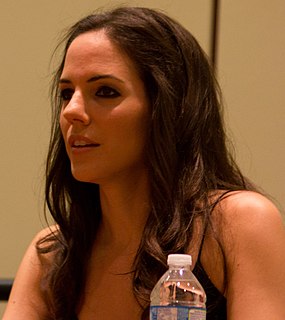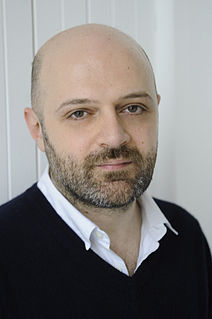A Quote by Naomie Harris
I wanted to play roles which offered new ways of viewing black women and black people in general- and I have done that. And I have always, whether I needed to pay the rent or not, I've always turned down roles which I thought were stereotypical. And so when I look at my body of work in that respect, I am really happy. Because I feel my work does say something positive and that was what I always set out to do.
Quote Topics
Always
Am
Because
Black
Black People
Black Women
Body
Does
Done
Down
Feel
General
Happy
Look
Needed
New
New Way
New Ways
Offered
Out
Pay
People
Play
Positive
Really
Really Happy
Rent
Respect
Roles
Say
Set
Something
Stereotypical
Thought
Turned
Turned Down
Viewing
Wanted
Ways
Were
Whether
Which
Women
Work
Related Quotes
If you just look at the number of roles for women versus the number of roles for men in any given film, there are always far more roles for men. That's always been true. When I went to college, I went to Julliard. At that time - and I don't know if this is still true - they always selected fewer women than men for the program, because there were so few roles for women in plays. That was sort of acknowledgment for me of the fact that writers write more roles for men than they do for women.
With my career in general, I feel like I'm finally getting to do the roles that I've always wanted to do. It's a slow build; you can't ever get the roles that you want in the beginning of your career because you don't have the buzz or the heat, or whatever the hell it is you need for the agents and the studios to be happy.
My clients were always poor folks, working folks, people who were in trouble and couldn't afford to pay a whole lot. I found it very difficult to say no to somebody who needed help, so most of my work turned out to be pro bono. It didn't start out that way, but it turned out that way because I never got paid.
We're in crisis mode as black actresses. It's not only in the sheer number of roles that are offered and that are out there, but the quality of the roles. The quality - and therein lies the problem. We're in deprivation mode because me, Alfre and Phylicia, we're in the same category. Whereas if you take a Caucasian actress, you have the one who are the teens, in their 20s, 30s, 40s, 50s - they're all different. There are roles for each of them. But you only have two or three categories for black actresses.
I always had acting work when I needed it. I think that is why, when I watch films or TV series in America, I find in small roles or in supporting roles really amazing faces, where I have the feeling these people have actually had a life outside of acting. I find it almost a pity that I've never done anything else.
It's so important to create roles and characters and projects that feature black people in a way that's not specifically targeted toward the niche market, which is, like, a black movie is created and it's produced and pitched so that only black people will watch it ... I want to see dynamic characters and roles that everyone wants to watch.
I always thought, I can't waste time, I have to do work. I also thought that I was slower than other people, that I had to concentrate more. I always thought, I'm not brilliant, I have to work. That was something I embedded in myself very early: I have to go home and write. But did I get any more work done than people like Frank O'Hara, who were always going to parties? Probably not.
I was lucky I went to school in London because the tutors could see what to do. I knew I wanted to do something different. Why would I want to do what other people were already doing, because they would always do it better? I always wanted to work around the body. So throughout my college years, my work was quite free.

































